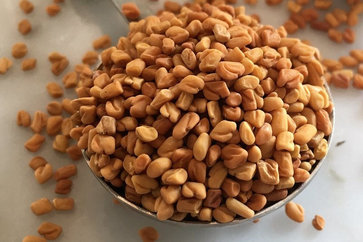Kickstart Your Day with Ayurvedic Weight Loss Breakfast
Ayurveda, the ancient Indian system of medicine, emphasizes the significance of a balanced diet tailored to an individual’s constitution (dosha). Each person has a unique combination of the three doshas—Vata, Pitta, and Kapha—that influences their physical and emotional characteristics. 
Understanding one’s dosha is key to making dietary choices that enhance health and well-being. Breakfast, in particular, is considered a crucial meal, as it sets the tone for the day and plays a vital role in maintaining energy levels, metabolism, and overall health.
A well-planned breakfast not only replenishes the body’s energy stores after a night of fasting but also ignites the digestive fire, or Agni, which is essential for proper metabolism. In Ayurveda, it is believed that starting the day with nourishing foods helps balance the doshas, supporting physical vitality and mental clarity.
Furthermore, a wholesome breakfast can stabilize blood sugar levels, reduce cravings, and enhance productivity throughout the day.Ultimately, the approach to breakfast in Ayurveda serves as a holistic strategy for weight management, digestive health, and overall vitality.
Importance of a Healthy Breakfast in Ayurveda
1. Balancing Doshas: A nutritious breakfast helps balance the three doshas—Vata, Pitta, and Kapha—by providing the right nutrients that correspond to your body type. This balance is essential for maintaining optimal health and weight.
2. Metabolism Boost: Consuming a wholesome breakfast kickstarts the digestive system (Agni), enhancing metabolism and helping the body effectively process food throughout the day. This can aid in weight management.
3. Sustained Energy: A well-balanced breakfast provides sustained energy, preventing mid-morning cravings and unhealthy snacking. Ingredients rich in fiber, healthy fats, and proteins keep you feeling full longer.
4. Nutrient Absorption: Eating a nutritious breakfast ensures that your body receives essential vitamins and minerals, which support various bodily functions and can aid in weight loss.
5. Mindful Eating: Ayurveda promotes mindfulness in eating, encouraging individuals to savor their meals. A calm, peaceful breakfast routine can reduce stress, which is often linked to weight gain.
6. Hydration: Starting the day with warm water or herbal teas can aid digestion and detoxification, preparing the body for better nutrient absorption.
Incorporating Ayurvedic principles into your breakfast can make a significant difference in your weight loss journey while promoting overall wellness. Whether it’s warm porridge, spiced smoothies, or herbal teas, these breakfasts are designed to nourish both body and mind.
What Makes an Ayurvedic Breakfast Special?
Ayurveda is built on several foundational principles that emphasize harmony between the body, mind, and environment. Key aspects include:
1. Doshas: Ayurveda categorizes individuals into three dosha types—Vata, Pitta, and Kapha. Each person has a unique balance of these doshas, and meals should be tailored to maintain or restore this equilibrium.
2. Agni (Digestive Fire): Agni refers to the body’s digestive power. A strong Agni is essential for optimal digestion and nutrient absorption, making it crucial to start the day with a meal that supports this fire.
3. Sattva, Rajas, and Tamas: These three qualities define the nature of food. Sattvic foods (pure, nourishing) are favored for promoting clarity and calmness, while tamasic (heavy, dull) and rajasic (stimulating) foods can disrupt balance and focus.
5. Seasonal and Local Ingredients: Ayurveda emphasizes using fresh, seasonal, and locally sourced ingredients, which are more aligned with the body’s needs and the environment.
6. Mindful Eating: Eating should be a conscious and joyful experience, allowing for proper digestion and appreciation of food.
Connection Between Breakfast and Weight Management
1. Metabolic Regulation: A balanced Ayurvedic breakfast can help stabilize blood sugar levels and enhance metabolic processes. Foods rich in fiber and protein prevent spikes and crashes in energy, aiding weight management.
2. Curbed Cravings: A satisfying breakfast helps reduce cravings later in the day. By choosing foods that align with your dosha, you can promote satiety and minimize unhealthy snacking.
3. Promotes Healthy Digestion: By supporting Agni with warming spices (like ginger and cinnamon) and easily digestible ingredients, an Ayurvedic breakfast encourages efficient digestion, leading to better nutrient absorption and less waste.
4. Energy Balance: Eating a nutritious breakfast sets a positive tone for the day, promoting physical activity and mental clarity, which can lead to healthier lifestyle choices overall.
5. Psychological Well-being: Starting the day mindfully with a wholesome breakfast fosters a positive mindset, which can reduce stress-related eating and contribute to a healthier relationship with food.
By integrating these Ayurvedic principles into your breakfast routine, you can create meals that not only nourish your body but also support your weight management goals effectively.
How Ayurveda Views the Role of Breakfast in Digestion (Agni)
In Ayurveda, Agni, or digestive fire, is a fundamental concept that represents the body’s ability to transform food into energy and nourishment. It influences metabolism, digestion, and overall health. Here’s how Agni plays a pivotal role:
1. Digestive Efficiency: A strong Agni ensures that food is properly broken down, nutrients are absorbed efficiently, and waste is eliminated effectively. When Agni is balanced, the body can utilize energy optimally.
2. Nutrient Transformation: Agni transforms the food you eat into Ojas (vital energy) and promotes the production of healthy tissues. This process is crucial for overall vitality and wellness.
3. Balancing Doshas: A well-functioning Agni helps maintain the balance of the doshas, preventing the buildup of toxins (ama) that can occur when digestion is weak.
Why Breakfast Is Crucial for Maintaining a Balanced Agni
1. Kickstarting Digestion: Breakfast acts as the first meal after an overnight fast. It awakens and activates Agni, preparing the digestive system for the day ahead. A nourishing meal fuels Agni and enhances digestive capabilities.
2. Stabilizing Blood Sugar: Eating a balanced breakfast helps regulate blood sugar levels, which is vital for maintaining a stable Agni. This prevents energy crashes and cravings, ensuring that Agni can function optimally.
3. Promoting Routine: Ayurveda emphasizes the importance of daily routines (dinacharya). Having a consistent breakfast time reinforces the body’s natural rhythms, supporting Agni and digestion throughout the day.
4. Choosing Nourishing Foods: A breakfast rich in wholesome ingredients—such as whole grains, fruits, nuts, and warming spices—supports a balanced Agni. These foods provide the necessary nutrients and energy to fuel your metabolism.
5. Hydration and Warmth: Starting the day with warm water or herbal teas can stimulate digestion and prepare Agni for food. This practice aids in flushing out toxins and rehydrating the body after sleep.
By prioritizing breakfast within the Ayurvedic framework, you ensure that Agni remains strong and balanced, promoting effective digestion and overall health throughout the day.
The Ayurvedic Approach to Body Types (Doshas)
In Ayurveda, the three doshas—Vata, Pitta, and Kapha—represent different combinations of the five elements (earth, water, fire, air, and ether). Each dosha embodies specific physical and emotional characteristics:
1. Vata:
- Elements: Air and Ether
- Characteristics: Vata types are typically thin, light, and energetic. They may have dry skin and variable appetites. Emotionally, they can be creative and lively but may also experience anxiety or restlessness.
- Balance: Vata needs warmth and grounding to maintain balance.
2. Pitta:
- Elements: Fire and Water
- Characteristics: Pitta individuals tend to be medium-built with strong digestion and a sharp intellect. They can be competitive and driven but may also experience irritability or anger when out of balance.
- Balance: Pitta requires cooling and calming foods to stay balanced.
3. Kapha:
- Elements: Earth and Water
- Characteristics: Kapha types are often sturdy and resilient, with a tendency to gain weight easily. They are calm, nurturing, and stable but may become lethargic or resistant to change.
- Balance: Kapha benefits from stimulating and lighter foods to maintain energy levels.
Breakfast According to Your Dosha for Weight Loss
1. Vata Breakfasts:
- Focus: Warm, moist, and nourishing foods to ground and stabilize Vata.
- Recommended Foods: Oatmeal cooked with warm milk, topped with nuts and fruits; spiced chai or herbal teas; cooked vegetables.
- Benefits: These meals support digestion and provide sustained energy, preventing excessive energy fluctuations and cravings.
2. Pitta Breakfasts:
- Focus: Cooling, hydrating, and less spicy foods to balance the heat of Pitta.
- Recommended Foods: Smoothies with cucumber, mint, and coconut milk; oatmeal with fruits like pears or berries; herbal teas that are cooling.
- Benefits: These choices help soothe digestive fire while maintaining energy levels, preventing feelings of irritability and stress.
3. Kapha Breakfasts:
- Focus: Light, warm, and invigorating foods to stimulate metabolism and energy.
- Recommended Foods: Quinoa or millet porridge with spices like ginger and cinnamon; smoothies with greens and citrus; herbal teas with warming spices.
- Benefits: These meals encourage digestion and boost metabolism, helping to manage weight effectively.
By customizing breakfast according to your dosha, you can enhance digestion, regulate energy levels, and support your weight loss journey in a holistic manner. This approach not only addresses physical needs but also fosters a deeper connection with your body’s unique requirements.
Best Ayurvedic Breakfasts for Weight Loss
General Principles for Creating a Balanced Breakfast
1. Incorporate All Six Tastes: Ayurveda emphasizes the importance of balancing all six tastes—sweet, sour, salty, bitter, pungent, and astringent—in each meal. This balance helps satisfy the palate and promotes a feeling of fullness.
2. Focus on Seasonal and Local Ingredients: Choose fresh, seasonal, and locally sourced foods to ensure maximum nutrient density and alignment with your body’s needs.
3. Choose Whole Grains: Opt for whole grains like oats, quinoa, or millet, which provide complex carbohydrates and fiber for sustained energy and satiety.
4. Include Healthy Fats: Add sources of healthy fats, such as nuts, seeds, or ghee, to support digestion and provide essential fatty acids.
5. Add Fresh Fruits and Vegetables: Incorporating fresh fruits or vegetables not only enhances flavor but also adds vitamins, minerals, and fiber, contributing to overall health.
6. Mindful Preparation: Prepare your breakfast with love and intention, focusing on the cooking process to cultivate mindfulness. This enhances the meal’s energy and promotes better digestion.
Importance of Warm, Easily Digestible Foods
1. Stimulates Agni: Warm foods help stimulate Agni, or digestive fire, making it easier for your body to break down and absorb nutrients effectively. This is especially important in the morning, after a night of fasting.
2. Reduces Digestive Strain: Easily digestible foods are gentle on the digestive system, minimizing the risk of bloating or discomfort. This is crucial for those looking to lose weight, as a healthy gut aids in metabolic efficiency.
3. Enhances Nutrient Absorption: Warm meals promote better nutrient absorption, allowing your body to utilize the food’s benefits fully. This can be especially helpful for those focused on weight loss, as effective nutrient absorption supports overall energy and metabolism.
4. Balances Doshas: Warm, cooked foods tend to pacify Vata and Kapha doshas, which can be beneficial for individuals prone to digestive issues or weight gain associated with these doshas.
5. Encourages Mindfulness: Enjoying a warm, nourishing breakfast encourages a mindful eating practice, helping you connect with your body’s needs and preventing overeating throughout the day.
Sample Ayurvedic Breakfasts for Weight Loss
1. Spiced Oatmeal: Cook oats with warm milk or water, adding spices like cinnamon and cardamom, topped with sliced bananas or apples and a sprinkle of nuts.
2. Quinoa Porridge: Prepare quinoa with almond milk and warming spices, sweetened with a touch of honey, and topped with seasonal fruits.
3. Vegetable Upma: A savory dish made from semolina, sautéed with vegetables and spices, providing a nutritious and filling option.
4. Smoothie Bowl: Blend greens with coconut water and fruits, topped with nuts and seeds for added texture and nutrients.
5. Chia Seed Pudding: Soak chia seeds overnight in warm almond milk, flavored with vanilla and spices, topped with fruits and nuts for a satisfying breakfast.
By following these principles and incorporating warm, easily digestible foods, you can create Ayurvedic breakfasts that support weight loss while nourishing your body holistically.
Vata-Balancing Breakfast Options
Best Ingredients for Vata Dosha
- Warm, moist foods: Cooked grains, warm milk, or soups.
- Healthy fats: Ghee, nuts, seeds (especially sesame).
- Sweet and grounding flavors: Sweet fruits (bananas, cooked apples), spices like cinnamon and ginger.
- Hydrating foods: Soups and smoothies with a balance of liquid.
Simple Recipes for Vata Types
Warm Oatmeal with Ghee:
- Ingredients: Rolled oats, water or milk, ghee, cinnamon, chopped nuts, and sweet fruit (like bananas).
- Instructions: Cook oats in water or milk until creamy. Stir in ghee, top with cinnamon, nuts, and sliced bananas.
Creamy Quinoa Porridge:
- Ingredients: Quinoa, almond milk, ghee, honey, and a pinch of salt.
- Instructions: Cook quinoa in almond milk until soft. Stir in ghee, honey, and a pinch of salt. Serve warm.
Pitta-Balancing Breakfast Options
Best Ingredients for Pitta Dosha
- Cooling foods: Fresh fruits, cucumbers, and leafy greens.
- Sweet and bitter flavors: Sweet fruits (pears, melons), and leafy greens (spinach, kale).
- Hydrating ingredients: Coconut water, yogurt, or smoothies.
- Mild spices: Fennel, coriander, and mint.
Simple Recipes for Pitta Types
Cooling Smoothie:
- Ingredients: Cucumber, coconut water, mint leaves, and a banana.
- Instructions: Blend all ingredients until smooth. Serve chilled.
Fruit and Yogurt Parfait:
- Ingredients: Plain yogurt, fresh berries, honey, and a sprinkle of granola.
- Instructions: Layer yogurt with berries and honey. Top with granola for crunch.
Kapha-Balancing Breakfast Options
Best Ingredients for Kapha Dosha
- Light, dry foods: Oats, millet, or barley.
- Spices: Warming spices like ginger, black pepper, and cinnamon.
- Fruits: Light, astringent fruits like apples and pears.
- Avoid heavy foods: Limit dairy and rich ingredients.
Simple Recipes for Kapha Types
Spiced Quinoa Bowl:
- Ingredients: Quinoa, water, ginger, black pepper, and diced apples.
- Instructions: Cook quinoa in water with grated ginger and black pepper. Serve topped with diced apples.
Millet Porridge with Spices:
- Ingredients: Millet, water, cinnamon, and a drizzle of honey.
- Instructions: Cook millet in water until fluffy. Stir in cinnamon and honey before serving.
By incorporating these Vata, Pitta, and Kapha balancing breakfast options into your routine, you can nourish your body according to Ayurvedic principles, promoting balance and well-being.
Spices and Herbs to Boost Weight Loss in the Morning
1. Ginger: Known for its warming properties, ginger helps stimulate digestion and can boost metabolism. It also aids in reducing inflammation.
2. Cinnamon: This sweet spice helps regulate blood sugar levels and enhances metabolic rates, making it a great addition to weight management.
3. Turmeric: With its active compound curcumin, turmeric has anti-inflammatory properties and supports liver function, aiding detoxification and fat metabolism.
4. Black Pepper: Known to enhance the bioavailability of nutrients, black pepper also has thermogenic properties that can help burn fat.
5. Cumin: This spice not only aids digestion but also has been shown to increase metabolic activity, helping with weight loss.
6. Fennel: Fennel seeds can help reduce bloating and support digestion, making them an excellent addition to breakfast for those seeking to lose weight.
How to Use These Spices in Your Breakfast
1. Ginger Tea: Start your day with a cup of ginger tea by steeping fresh ginger slices in hot water. You can add honey or lemon for flavor.
2. Cinnamon Oatmeal: Sprinkle cinnamon on your morning oatmeal or mix it into smoothies to enhance flavor and metabolism.
3. Turmeric Smoothie: Blend turmeric into your morning smoothie along with fruits, greens, and a splash of coconut water for a nutrient-packed drink.
4. Spiced Quinoa Bowl: Add cumin and black pepper to cooked quinoa, topped with steamed vegetables and a drizzle of olive oil.
5. Fennel Seed Infusion: Soak fennel seeds in warm water overnight and drink it first thing in the morning for a refreshing detox drink.
The Importance of Hydration and Detoxing with Warm Water
Benefits of Starting the Day with Warm Water or Herbal Teas
1. Hydration: After a night’s sleep, your body is often dehydrated. Warm water helps replenish fluids and kickstart metabolism.
2. Detoxification: Warm water helps flush out toxins accumulated overnight, aiding the body’s natural detox processes.
3. Improved Digestion: Drinking warm water stimulates digestion by promoting the production of digestive enzymes and improving gut motility.
4. Soothing Effect: Herbal teas, like chamomile or peppermint, can calm the mind and body, setting a positive tone for the day.
How It Aids in Digestion and Weight Loss
1. Enhanced Digestion: Warm water aids in the breakdown of food, allowing for better nutrient absorption. This is especially important when combined with a healthy breakfast.
3. Reduced Cravings: Starting your day with warm water can help reduce hunger pangs, preventing overeating later in the day.
4. Boosts Metabolism: Drinking warm water can temporarily increase your metabolic rate, promoting more efficient calorie burning.
5. Improved Nutrient Absorption: Proper hydration helps the body absorb essential nutrients from food more effectively, supporting overall health and weight loss.
By incorporating these Ayurvedic spices into your morning routine and starting your day with warm water or herbal teas, you can support digestion and enhance your weight loss efforts in a holistic way.


























